
Do you have what you need to make your garden grow?


Garden Center
Store Hours
Mon-Sat:
6:00am - 10:00pm
Sun:
8:00am - 8:00pm
Curbside:
09:00am - 6:00pm
Location
Popular at Your Garden Center
Trending Garden Supplies in May
Trending Live Plants
Garden Project Calculators
;Resize=(703,395.44))
Grass Seed Calculator
When you're ready to seed your lawn, our calculator helps you estimate the amount of grass seed you'll need to get the job done.
;Resize=(703,395.44))
Mulch Calculator
Enter your preferred material, the square footage and mulch depth of the coverage space for accurate results.
;Resize=(703,395.44))
Fencing Calculator
We'll calculate the amount of fencing you should purchase based on your property needs.
Shop Outdoor and Garden Brands
Frequently Asked Questions About Gardening
Which planting zone am I in?
Check the USDA zone map, as planting zones have shifted over the years. Planting zones with higher numbers can plant earlier in the year. Increase your odds of successful gardening by choosing plants that are meant for your zone.
What's direct sow in gardening?
If the soil isn't cold and frozen, consider planting your veggie, fruit, or flower seeds directly into your garden. This is called the "direct sow" method. The time to plant will be after the threat of frost is gone for the season, as sprouts and seedlings can't weather those conditions. You can also start your seeds indoors if you'd like. Consult your seed package for when and how to sow seeds.
How do I plant flower seeds?
The best source of information is the seed package your garden-to-be came in. It's key to successfully growing fruits, veggies, and spring flowers — indoors or outdoors. Requirements vary with each seed type. Some seeds should only be sown indoors, and your seed envelope will tell you that, too. You'll be a pro at planting seeds in no time.
Do I have to harden off my seedlings before planting them outside?
Yes, for best results, if you raised plants indoors from seeds in your own plant nursery, harden them first before you transplant them. Hardening is the process of getting them used to outdoor life and the fluctuating spring weather. It slows their growth until they're strong and ready to take off during a spring warm front. Hardening also makes your plants more resilient to a sudden cold snap.
Can I strengthen my seedlings before planting them outdoors?
Get your sprouts used to storms and breezy spring days with a fan and keep fungus from growing in damp conditions. Set up an oscillating floor fan on low to mimic the wind. Just the gentlest breeze for several hours a day will do the trick — no need to prep them for a hurricane. This makes them stronger against wind gusts. If you don't set up a fan, your seedlings may be more sensitive to strong winds. Try to plant between storms.
Should I use peat moss starters or coir starters?
Seed starters, full of nutrients in convenient pellets or pots, work for new and experienced gardeners. You don't have to use these starters if you're planting in soil, but you may want to. Starting seeds in peat pots works best for delicately rooted plants like carrots and beets, as well as flowers that need acidic soil. Some people prefer coir starters instead, as they have a neutral pH. Check what type of soil your plants need to help narrow it down, and chat with a garden center associate if you need more info.
Garden Project Ideas
The Home Depot Garden Center at W Macon
Set Up For Springtime
It's time to start thinking of spring. Clean the shed and sweep out the gazebo to prepare for fragrant breezes, sprouts poking up, and warmer temperatures. Planting seeds indoors means you'll be ready to transplant young veggie plants and spring flowers when the frosts are through and the ground thaws. You might even want to plant organic seeds directly into the earth. What better way to start than by exploring your favorite local plant nursery, The Garden Center in W Macon?
Plant Hardiness Zones Explained
The first thing to know when planting spring flowers, veggies, and other seeds is your planting zone. Every location in the U.S. and its territories is sorted by climate. Find your zone on the USDA growing zone map and learn when to plant seeds.
For example, you could transplant bell peppers outdoors in mid-March in Zone 10, but not until the end of May in Zone 4. You'll have good results with plants that have your zone number or less. In other words, a Zone 5 garden can support plants listed as Zones 1–5. You can plant seeds indoors roughly a month before you can plant them outside, known as direct sow. Read your seed packet for details. If you start them a little later than recommended, it's not ideal, but it will even out as time passes.
Gardening in Your Growing Zone
In the areas of Zones 9 and 10 stretching across the Southeast, you can begin planning and planting indoors early in the year. Your odds of frost are low in this part of the country, but not zero. Watch out for cold snaps and cover any sprouts or early-riser bulb plants during cold times.
Growing season begins early and ends late in this part of the country. A wide variety of veggies, flowers, and plants thrive in Florida and southern Georgia. If you've got good soil drainage, you can even grow citrus trees. You'll have excellent results with peppers of all heat levels and colors, including jalapeños, bell peppers, and more. Zucchini, cucumbers, squash, and pumpkins, which are direct sow only, will flourish. Tomato plants will yield thriving leaves and fruit, as they're tropical in origin and love the heat.
Plant Seeds Outside With Direct Sow
Planting seeds with the direct sow method, right into the soil, is another option. There's less tending and planning than growing indoors. If you like to go with the flow, follow the instructions on your seed pouch and try it out.
Your seeds might struggle to grow or get washed away, or insects or rodents might eat the sprouts. But if you're really lucky, you might get strong sprouts, perfectly spaced and ready to grow all spring. The reality of your garden will usually be somewhere in between, and spreading out tiny sprouts throughout the soil isn't so bad. You know those sprouts are hardy, although there are no guarantees in the long term.
Start Seeds Indoors
If you'd like more control over your seedlings' journey or you're eager to get growing, start your seeds indoors in your own plant nursery. In general, you can plant seeds indoors about a month before you can do it outside. Like direct sow, you push the seeds into the soil as directed on the seed packet, but that's where the similarities end.
You're responsible for giving them quality substitutes for sun and rain. Keep your seeds warm with warming mats and grow lights, water them carefully with a mister or watering can, then thin them as they germinate in groups of three. Give them a boost with a gently blowing fan as they lengthen into sprouts if you'd like. Harden them off to get them used to outdoor conditions, then transplant them into your garden when they're big enough.
Transplant Young Plants Into Their New Homes
You've raised your baby plants from seeds, watched them sprout, and carefully hardened them off to brave Mother Nature. By now, your plants have three or four true leaves — they'll look different from the miniature seedling leaves. When you're not expecting soaking rain, and the ground is warm, look into transplanting your small plants into their new outdoor home. These large seedlings that are ready to be planted can also be called "transplants" or sometimes "starts." In cases where you direct sowed, you may still want to shuffle plants around for the best spacing and sun. That's also a transplant situation, as is repotting plants into larger pots.
Protect Your Garden With Mulch
Finish off your garden with mulch and compost. Compost enriches the soil so your garden can grow even better. It may help foster larger and stronger plants that bear more flowers and fruit. Mulch controls weeds and keeps the soil moist. Mulch and compost can be purchased in-store or created at home. The next time you're looking for "mulch near me," stop by the Garden Center to get the perfect amount.
Greet the Spring
Early spring is an exciting time in the world of gardening. Plan your garden and landscaping, prepare to fertilize your lawn, and browse The Home Depot nursery to find inspiration on which spring flowers to plant when the weather warms. For those without lawns, consider adding artificial grass or a pellet grill to your outdoor space. Shop for the soil, fertilizer, and seeds you need in the aisles of your W Macon Garden Center, online, or on our mobile app. Let's get growing together.
Nearby Stores
Find Another Store
2620 Watson Blvd
Warner Robins, GA 31093
14.28 mi
Mon-Sat: 6:00am - 10:00pm
Sun: 8:00am - 8:00pm
1025 Highway 19 North
Thomaston, GA 30286
36.85 mi
Mon-Sat: 6:00am - 9:00pm
Sun: 8:00am - 8:00pm
1435 Highway 16 W
Griffin, GA 30223
44.56 mi
Mon-Sat: 6:00am - 10:00pm
Sun: 8:00am - 8:00pm
)
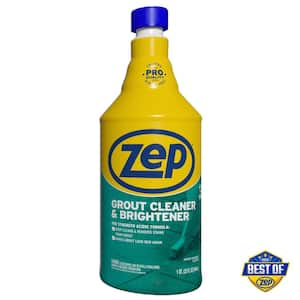
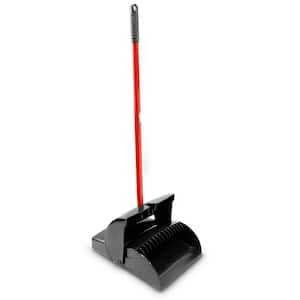
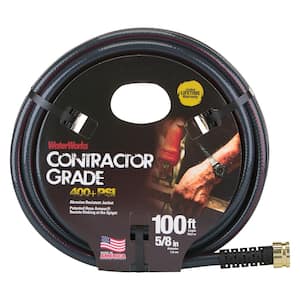
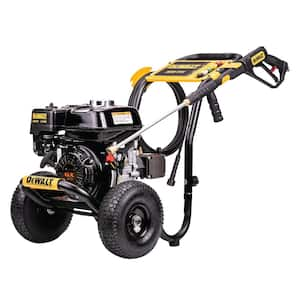
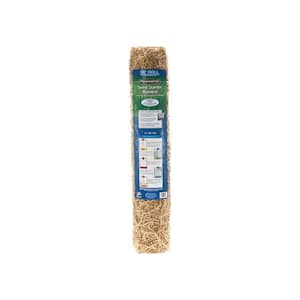
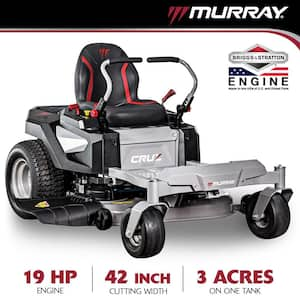
)
)
/17_514245_S_012_Product%20Image%20(square).jpg?im=Resize=(300,300))
;Resize=(300,300))
)
)
)
)
)
/2023_P2_Rain_Barrels_Product%20Image%20(square).jpg?im=Resize=(300,300))
)
;Resize=(300,300))
;Resize=(300,300))
;Resize=(300,300))
/12_SOIL_B_0420_Social%20media%20(square).jpg?im=Resize=(300,300))
;Resize=(300,300))
)
)
;Resize=(300,300))
;Resize=(300,300))
;Resize=(300,300))
;Resize=(300,300))
)
)
;Resize=(300,300))
;Resize=(300,300))
;Resize=(300,300))
;Resize=(300,300))
;Resize=(300,300))
)
/18Patio_Camden_Seagrass_5pcSeating_Planters_302468736_DTL3_L_Social%20media%20(square).jpg?im=Resize=(300,300))
;Resize=(300,300))
;Resize=(300,300))
;Resize=(300,300))
)
;Resize=(300,300))
;Resize=(300,300))
)
;Resize=(300,300))
)
.jpeg?im=Crop,rect=(363.69230769230774,1.2307692307692308,958.7692307692308,958.7692307692308);Resize=(300,300))
;Resize=(300,300))
)
;Resize=(300,300))
;Resize=(300,300))
)
;Resize=(300,300))
)
)
;Resize=(300,300))
;Resize=(300,300))
)
)
;Resize=(300,300))
)
;Resize=(300,300))
;Resize=(300,300))
)
)
;Resize=(300,300))
)
)
/Capello_Spring_Mum_10in_Social%20media%20(square).jpg?im=Resize=(300,300))
;Resize=(300,300))
)
)
;Resize=(300,300))
)
)
;Resize=(300,300))
)
)
;Resize=(300,300))
;Resize=(300,300))











































